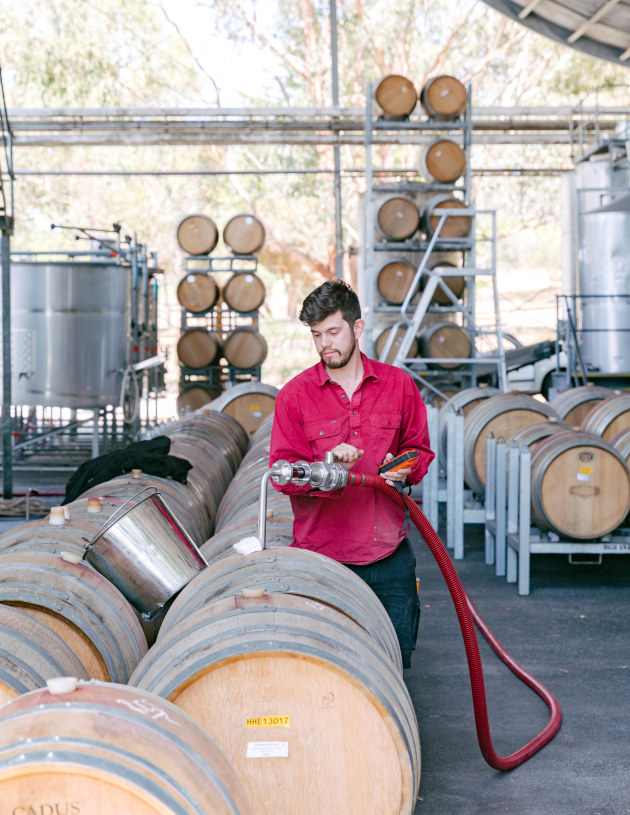End-to-end winemaking services company, Hirsch Wine Group, has modernised its wine production, with the introduction of a fully automated bottling line, and expansion of its facilities to include 6000 square meters of temperature-controlled storage.

A rapidly expanding family-run company that supports the wine industry with a range of services, Hirsch Wine Group is based in the Yarra Valley, a hub for Australian winemaking. Its latest investment aims to position the company as an industry leader, offering the region comprehensive and cost-effective end-to-end service integrating winemaking, bottling and storage.
The new 100 per cent automated Italian Alfatek bottling line is capable of producing up to 2500 bottles per hour, handling glass to cork to pallet with precision and efficiency. The installation was completed in one month, with support from supplier Grapeworks, prioritising a deep understanding of the technology for the team.
The system’s flexibility meets both high-volume needs and smaller batch runs, effective for a range of winemakers and businesses.
Hirsch Wine Group CEO, Ben Hirsch, said the company is pushing the traditional boundaries of the wine industry by integrating advanced technology and automation into the winemaking process.
“This is a natural progression as we expand – by streamlining our bottling operations, we’re optimising the entire production process, enhancing both the quality and efficiency of what we offer,” said Hirsch.
“We didn’t just want to implement the technology; we wanted to make sure we had the best knowledge and expertise to operate it efficiently. The process has been very smooth, and the challenges we’ve faced have been rectified immediately by the industry professionals at Grapeworks – our focus is always on continuous improvement and ensuring we are maximising potential.”
In addition to the bottling line, the Group has purchased and renovated an old neighbouring chicken farm to create an expansive, thermoregulated storage space.
The integration of bottling and storage eliminates the need for additional third-party storage and transportation costs – expenses that can easily run into the tens of thousands of dollars for independent wineries.
“Wineries that typically outsource their bottling and then need to transport their wine to another facility for storage are also faced with high costs and added risks of quality degradation during transport.
By offering transportation and storage directly alongside our bottling services, we’re providing an incredibly streamlined, cost-effective solution for our clients that safeguards the integrity of their wine”, says Hirsch.
While automation has optimised efficiency and scalability, Hirsch Wine Group and its winery, Hirsch Hill, remains committed to maintaining the integrity of its wines. Looking ahead, the company is focused on further expanding its bottling line and storage capabilities.
The Group plans to optimise efficiencies in the winemaking process by incorporating more advanced technologies and enhancing its service offerings for both small and large-scale wine producers.
“As the wine industry evolves, we’re not just leading the way – we’re setting a new standard. As one of the fastest-growing wine companies in the industry, we are raising the bar, delivering an end-to-end service that reshapes the status quo and challenges the industry’s traditional limits,” said Hirsch.






